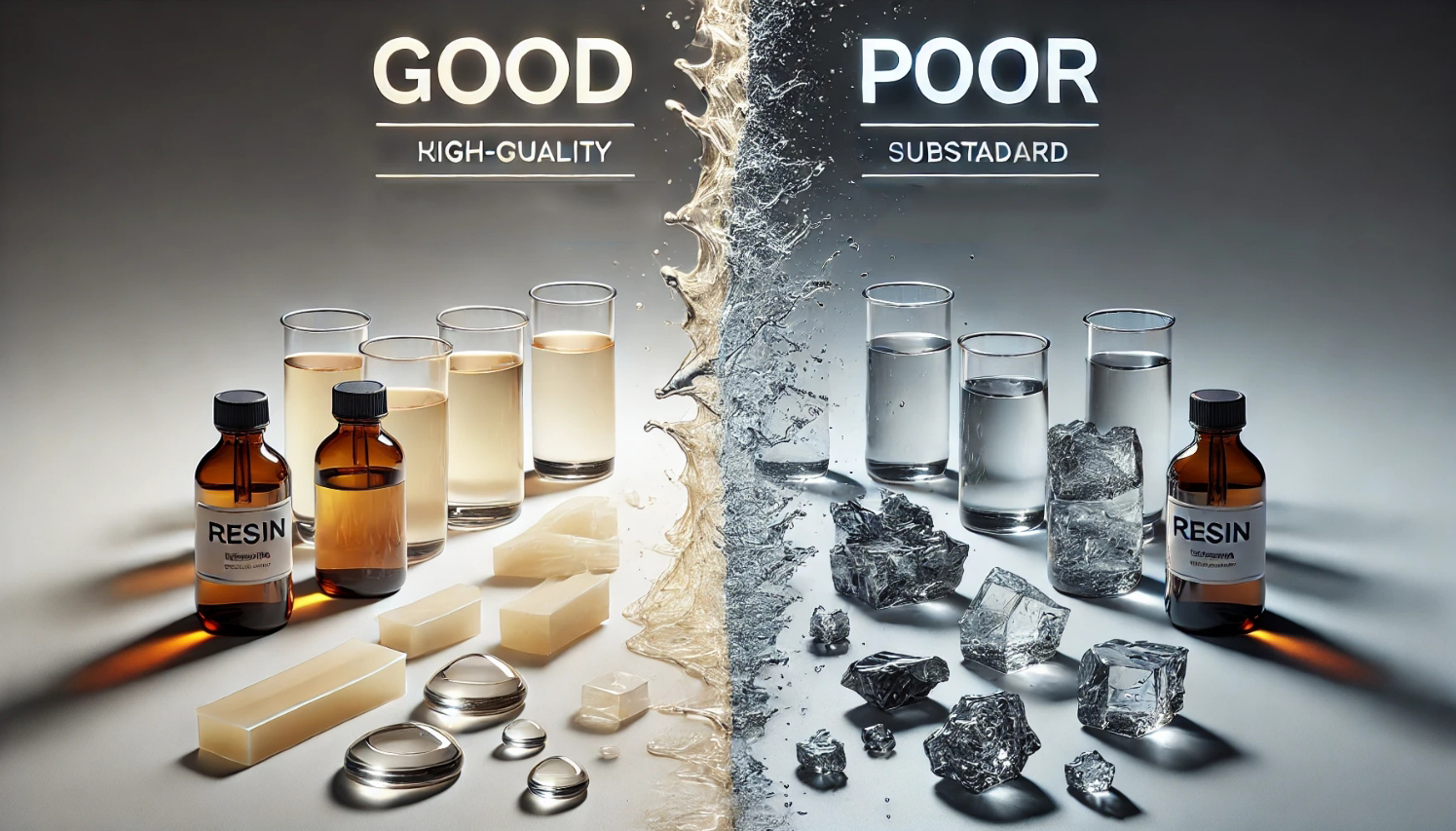
Ever found yourself scratching your head over which resin product supplier to trust? I've been there, and it's not as straightforward as it seems.
Choosing the right resin supplier is crucial for quality, reliability, and peace of mind. It's about more than just prices—it's about building a partnership that supports your goals.
Let's dive into what really matters when making this important decision.
What are the key factors to consider when selecting a quality resin supplier?
Selecting a supplier isn't just ticking boxes; it's about finding someone who gets your needs.
Key factors include product quality, supplier reliability, and excellent customer service. These elements ensure you receive consistent, high-quality resin products that meet your specifications.

Imagine you're working on a tight deadline for a big project. The last thing you need is a shipment delay or subpar resin that ruins your work. I've learned that a supplier's reliability can make or break your success.
Here are some factors to keep in mind:
- Product Quality: Ensure the resin meets industry standards and your specific requirements. Ask for samples if possible1.
- Supplier Reputation: Research their history2. Do they have positive reviews? Have they worked with businesses similar to yours?
- Customer Service: You want a supplier who responds promptly and values your business.
- Delivery Times: Consistent and timely deliveries are essential to keep your projects on schedule.
- Pricing: While cost is important, it shouldn't compromise quality. Look for transparency in their pricing.
Taking the time to evaluate these factors can save you headaches down the road. It's like building a relationship—you want trust, reliability, and mutual respect.
How can you evaluate supplier credentials and certifications?
Credentials speak volumes about a supplier's commitment to quality.
Evaluating supplier certifications ensures they comply with industry standards and regulations. This verification helps you avoid potential legal issues and guarantees product consistency.

Sometimes, sifting through certifications feels like decoding a secret language. But it's simpler than it seems. Here’s how I approach it:
- Check for ISO Certifications: These indicate the supplier adheres to international quality management standards. Learn about ISO certifications for suppliers3.
- Request Compliance Documents: Ensure they meet environmental and safety regulations relevant to your region. Understand key compliance requirements for suppliers4.
- Ask for Test Reports: Legitimate suppliers should provide product testing results from recognized laboratories.
- Verify Professional Memberships: Membership in industry associations can reflect their commitment to staying updated with industry trends.
By doing this due diligence, you protect yourself from unreliable suppliers. It's like verifying someone's references before hiring them—essential and smart.
When comparing resin suppliers, what should you look for?
Comparing suppliers is more than lining up prices; it's about value.
Look for differences in product offerings, customization options, and added services. These can make a significant impact on your overall satisfaction and success.

I've found that creating a comparison chart helps visualize the pros and cons. Consider including:
| Criteria | Supplier A | Supplier B | Supplier C |
|---|---|---|---|
| Product Quality | High | Medium | High |
| Customization Options | Yes | No | Yes |
| Lead Time | 2 weeks | 1 week | 3 weeks |
| Price | $$ | $ | $$$ |
| Customer Support | 24/7 | Business Hours | 24/7 |
Don't just focus on the numbers—think about how each factor affects your business. For instance, a shorter lead time might be worth the extra cost if it means meeting your deadlines.
Learn how to create effective supplier comparison charts5.
Explore factors influencing resin supplier pricing6.
Remember, the cheapest option isn't always the best. It's about finding the right balance between cost, quality, and service.
What red flags should you avoid when choosing a resin manufacturer?
Sometimes, what a supplier doesn't say is more important than what they do.
Red flags include lack of transparency, inconsistent communication, and unrealistic promises. Spotting these early can save you from future troubles.

I once dealt with a supplier who was always vague about delivery dates. It turned out they were juggling too many orders and couldn't keep up. Here's what to watch out for:
- Poor Communication: Delayed responses or evasive answers are a bad sign. Learn how to spot poor communication in suppliers7.
- No Physical Address or Contact Information: Legitimate businesses provide clear contact details. Understand why verifying supplier contact details matters8.
- Unwillingness to Provide Samples or Certifications: This could mean they have something to hide.
- Prices Too Good to Be True: Extremely low prices might indicate low quality or hidden costs.
- Negative Reviews or Lack of References: Look for testimonials or ask around in industry forums.
Trust your instincts. If something feels off, it's okay to walk away. Your peace of mind and the success of your projects come first.
Conclusion
Choosing the right resin supplier doesn't have to be overwhelming. By focusing on quality, reliability, and transparency, you can find a partner who supports your vision.
At ilovelyhouse, we're passionate about sharing knowledge and helping you navigate the world of resin crafts. Feel free to reach out or visit our website for more insights.
-
The link is helpful because it gives you a guide on how to assess resin quality effectively, ensuring the products meet your specifications before committing to a large order. ↩
-
This link helps you learn methods to check reviews, case studies, and other indicators of a supplier's reliability, enabling you to make a confident choice. ↩
-
This link helps you understand which ISO standards to prioritize when evaluating supplier credentials, ensuring they meet globally recognized quality benchmarks. ↩
-
This link provides guidance on the critical environmental, safety, and legal compliance documents to request, helping you avoid regulatory issues. ↩
-
This link provides a guide to structuring and using comparison charts, making it easier to evaluate multiple suppliers objectively. ↩
-
This link helps you understand the key variables in resin pricing, like material grade, bulk discounts, or shipping costs, enabling more informed cost comparisons. ↩
-
This link helps you recognize and address communication issues early, ensuring smoother interactions and better reliability. ↩
-
This link explains how clear and accurate contact details are essential for accountability and resolving potential disputes. ↩





